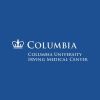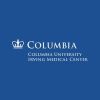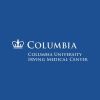How High Blood Pressure Affects Heart Health
1. The Link Between High Blood Pressure and Heart Disease
When we think about heart disease, many factors come to mind: poor diet, lack of exercise, stress, and genetic predisposition. But one of the most significant risk factors that people often overlook is high blood pressure, or hypertension. This condition, which affects nearly one in three adults in the United States, is strongly linked to the development of heart disease.
High blood pressure forces the heart to work harder than normal to pump blood throughout the body. Over time, this extra strain can cause damage to the heart and blood vessels, making them less efficient and more prone to serious health problems like heart attack, stroke, and heart failure. In this article, we’ll explore how high blood pressure contributes to heart disease and what you can do to reduce your risk.
2. How High Blood Pressure Damages the Heart
High blood pressure is often called the "silent killer" because it typically doesn’t present noticeable symptoms. However, its effects on the body, particularly the heart, can be severe. When your blood pressure remains elevated for a prolonged period, it starts to damage your arteries, making them stiffer and narrower. This process is known as atherosclerosis, and it is a major contributor to heart disease.
As blood pressure continues to increase, the heart muscle itself also begins to suffer. The strain from constantly working harder can lead to a condition known as left ventricular hypertrophy, where the heart's left ventricle thickens in response to the additional pressure. This can impair the heart’s ability to pump blood efficiently, increasing the risk of heart failure.
3. Real-Life Example: The Impact of Hypertension on Heart Disease
Let’s take a look at a real-life example to better understand how hypertension contributes to heart disease. My friend Sarah was diagnosed with high blood pressure in her mid-40s. At first, she felt fine and didn’t think much of it, especially since she wasn’t experiencing any symptoms. Over the years, she continued her lifestyle of poor diet and lack of exercise, and her blood pressure remained high.
By the time she was in her 50s, Sarah experienced shortness of breath and fatigue, which led to a diagnosis of heart failure. Her doctor explained that the prolonged strain from her high blood pressure had caused her heart to enlarge and weaken, a direct result of years of untreated hypertension.
Sarah’s story is a reminder that high blood pressure isn’t something to ignore. It’s a condition that can quietly lead to serious health complications if left unchecked.
4. Managing High Blood Pressure to Prevent Heart Disease
The good news is that high blood pressure is manageable, and by taking steps to control it, you can significantly reduce your risk of heart disease. There are several effective strategies for managing hypertension:
- Healthy Diet: Eating a diet rich in fruits, vegetables, whole grains, and lean proteins can help reduce blood pressure. The DASH diet (Dietary Approaches to Stop Hypertension) is especially beneficial for managing hypertension.
- Regular Exercise: Engaging in regular physical activity, such as walking, swimming, or cycling, can help lower blood pressure and strengthen the heart.
- Medication: For some people, lifestyle changes alone may not be enough. In these cases, doctors may prescribe medications such as ACE inhibitors, beta-blockers, or diuretics to help control blood pressure.
- Stress Management: Chronic stress can contribute to high blood pressure, so practicing stress-reducing techniques like meditation, yoga, and deep breathing can be beneficial.
5. Preventing Heart Disease by Controlling Blood Pressure
Preventing heart disease starts with taking control of your blood pressure. By managing hypertension early on, you can reduce the risk of developing heart-related complications later in life. Regular check-ups with your doctor are essential to monitor your blood pressure and make necessary adjustments to your treatment plan.
It’s important to remember that even small lifestyle changes can have a significant impact. For example, reducing sodium intake, quitting smoking, and limiting alcohol consumption are all effective ways to keep your blood pressure in check. Additionally, knowing your family history and working with your healthcare provider to address any genetic risks can help you stay on top of your health.
6. Consider Products to Help Manage Your Blood Pressure
If you’re looking for ways to monitor and manage your blood pressure at home, there are several products available that can help. Blood pressure monitors, for example, allow you to track your readings and ensure your levels stay within a healthy range. Many of these devices are easy to use and provide immediate results, allowing you to stay informed and make adjustments as needed.
At Heart Health Solutions, we offer a range of products designed to help individuals manage their blood pressure and support heart health. From blood pressure monitors to heart-healthy supplements, we’ve got you covered. Visit our website today to learn more about how you can take control of your health and reduce your risk of heart disease.




















